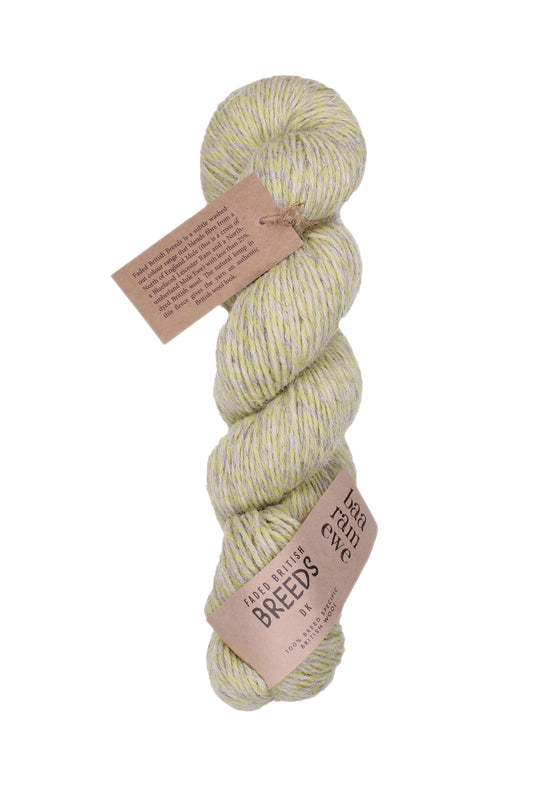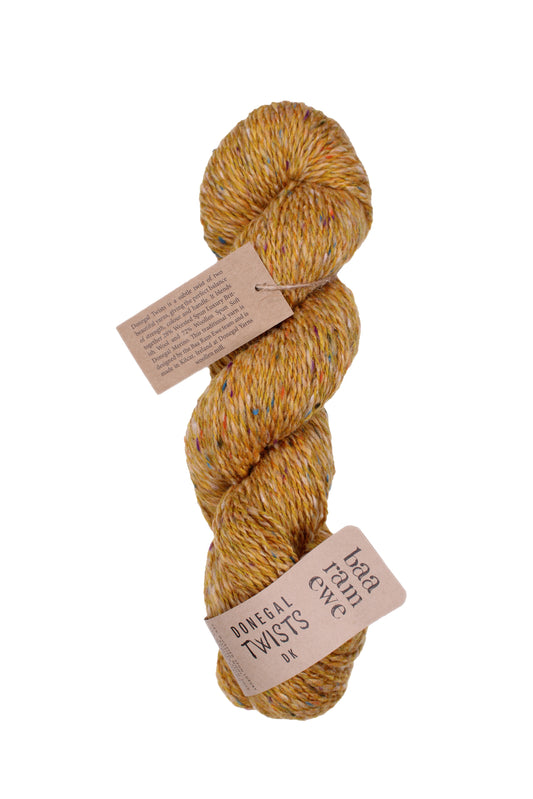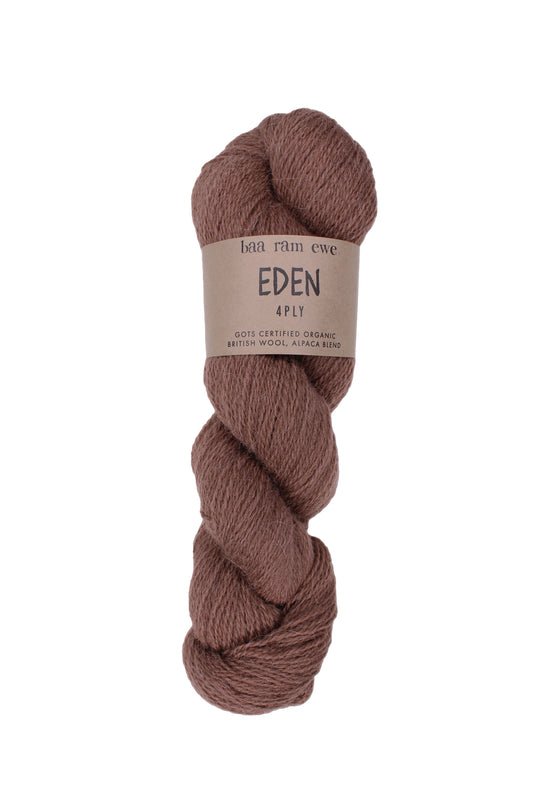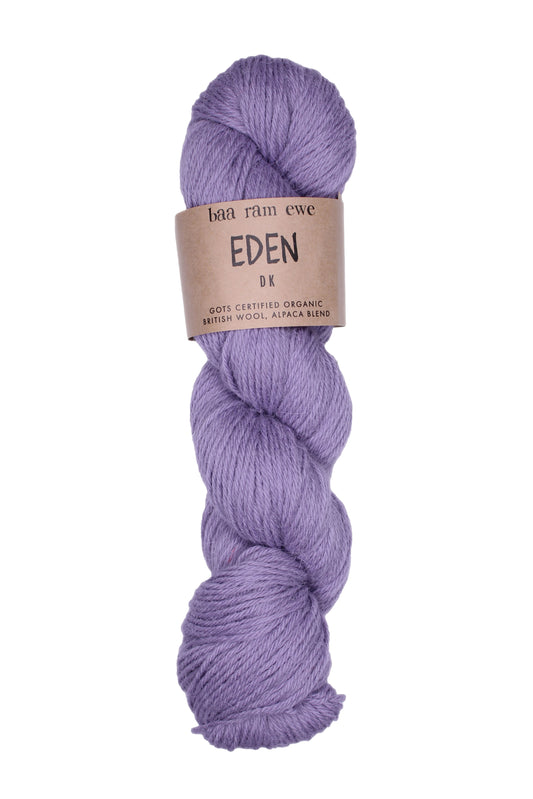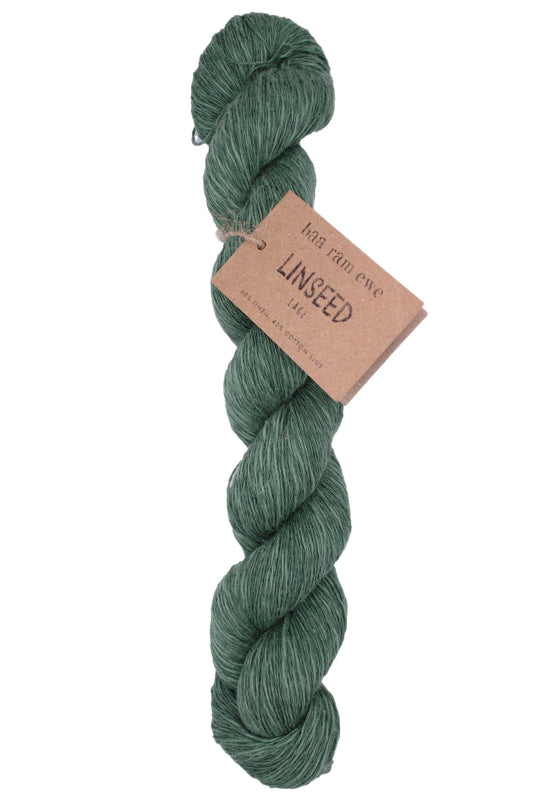About Manos
History of the Manos del Uruguay Cooperatives
“We all were happy to have an income derived of the products we made with our own hands, but there were also important changes. 40 years don’t seem like so much, but it was a really different time then. Women didn’t have their own incomes, the husband was the one working. This job took the women out of their homes and made them function individually. We were learning to group, have meetings, administrate money, make decisions, organize orders, deliveries and stock, take charge of all the coop’s needs and make ourselves responsible for them. We grew up and found aptitudes we hadn’t imagined we had. It was a revolution.”
– Elisabeth Sosa, artisan and former President of Manos board.
The Manos Cooperatives were founded in 1968, begun by five women whose goal was to develop economic opportunities for women in a country where there were, and are still, few opportunities for work.
They began modestly, by selling handcrafts at local shops and the annual agricultural show in Montevideo. In time spinning, dyeing, weaving and knitting became the focus of the Coop’s efforts. Initially the “faded”, striated colors of Manos yarn were the result of heating yarn for dyeing in large, iron kettles over wood fires. Over the years, the dying process has been refined to provide consistency of color without losing what has become the trademark stria shading.
Continuing to develop its reach while helping to organize the working women of Uruguay both socially and financially, the Manos Cooperatives opened a showroom in New York City in 1976, selling knitted and woven garments as well as yarn for handcrafters. (This showroom closed in 1986.) Since then, the Manos Cooperatives have expanded to encompass 17 individual cooperatives, employing 350 artisans.
While the Cooperatives, collectively, are a large and well-organized business, each individual coop is still very much a small local business. At the Fraile Muerte Cooperative, in fair weather, chickens wander around the yard beneath the drying yarn. In the winter, production schedules have to allow for increased drying time, because there are no indoor drying facilities; all the yarns are still line-dryed out-of-doors.
In addition to creating yarns for handcrafters, the Manos Cooperatives have continued to produce ready-to-wear pieces for designers and department stores such as Ralph Lauren, Donna Karan, Nordstrom’s, and Sak’s.

Lides winding yarn at Dragon
The Manos Cooperative is proud of its WFTO certification. The WFTO is committed to the 10 principles of Fair Trade:
- Creating opportunities for economically disadvantaged producers
- Transparency and accountability
- Capacity building
- Promoting Fair Trade
- Payment of a fair price
- Gender Equality
- Safe and healthy work conditions
- Respect for the UN Convention on the Rights of the Child (child labor)
- Better environmental practices
- Trade with concern for the well-being of marginalized small producers
Benefits to Uruguay and the Uruguayans
“I entered to the Sarandí Grande Coop at the age of 18 to test as a spinner. I needed the job but had never spun, just watched my mother do it. The artisans told me I was going to be first a member applicant and later a member — that is to say, an owner of Manos. That made a great impression on me. With time I discovered there were artisans that enjoyed working spinning, dyeing, knitting or weaving and others like me that enjoyed management. For me, Manos was like going to the University. I learned to run my Coop, then I integrated the Directing Board, and finally I entered the Production Department acting as a bridge between the Manager (who came from an industrial background) and the artisans’ reality. Now, I’m the Production Manager, and have made a career step by step with constant training and growth.”
– Eloina Morales, artisan and Manos Production Manager.
The Manos Cooperatives provide health insurance, retirement pensions, paid vacations and paid maternity leave for their members. Moreover, members enjoy a sense of achievement and of self-determination.
While today there are kindergartens and preschools throughout the country, the first kindergartens in Uruguay were begun by the Manos Cooperative, to provide childcare for the artisans. Thus, in addition to the benefits of direct income, there have been improved educational opportunities for the members’ children. In fact, the Manos Cooperatives have led the way for better education for all the children of Uruguay.

Mirta-Elena spinning Wool Clasica at Fraile Muerto
What does it mean to purchase Manos del Uruguay yarn?
“Part of what it means as an individual with a social conscious is to step up to the plate and and to put what I hope are my talents forward in a visible way to support what I believe in, and those whose business practices support what I believe in. In this case, that means Manos, and it means I have cast my lot with a mostly women-run business. That is of real, substantial, importance to me as well. First as a musician and composer, then as a designer, I work in a world surrounded by men. I think it’s time to see what socially conscious women can do together to make this world a better place.”
– Nadia Severns, Designer
With each purchased skein of Manos del Uruguay yarn you will be helping a woman to support her family. Each skein is signed, so you will know who made your yarn, and from which village it came. You will be supporting the hand-crafted rather than mass-produced, and contributing to an economy where the workers control of the means of production. You, as a handknitter, crocheter or weaver, will be contributing to women’s careers in harmony with family life, and contributing to the landscape, and cultural heritage of Uruguay.
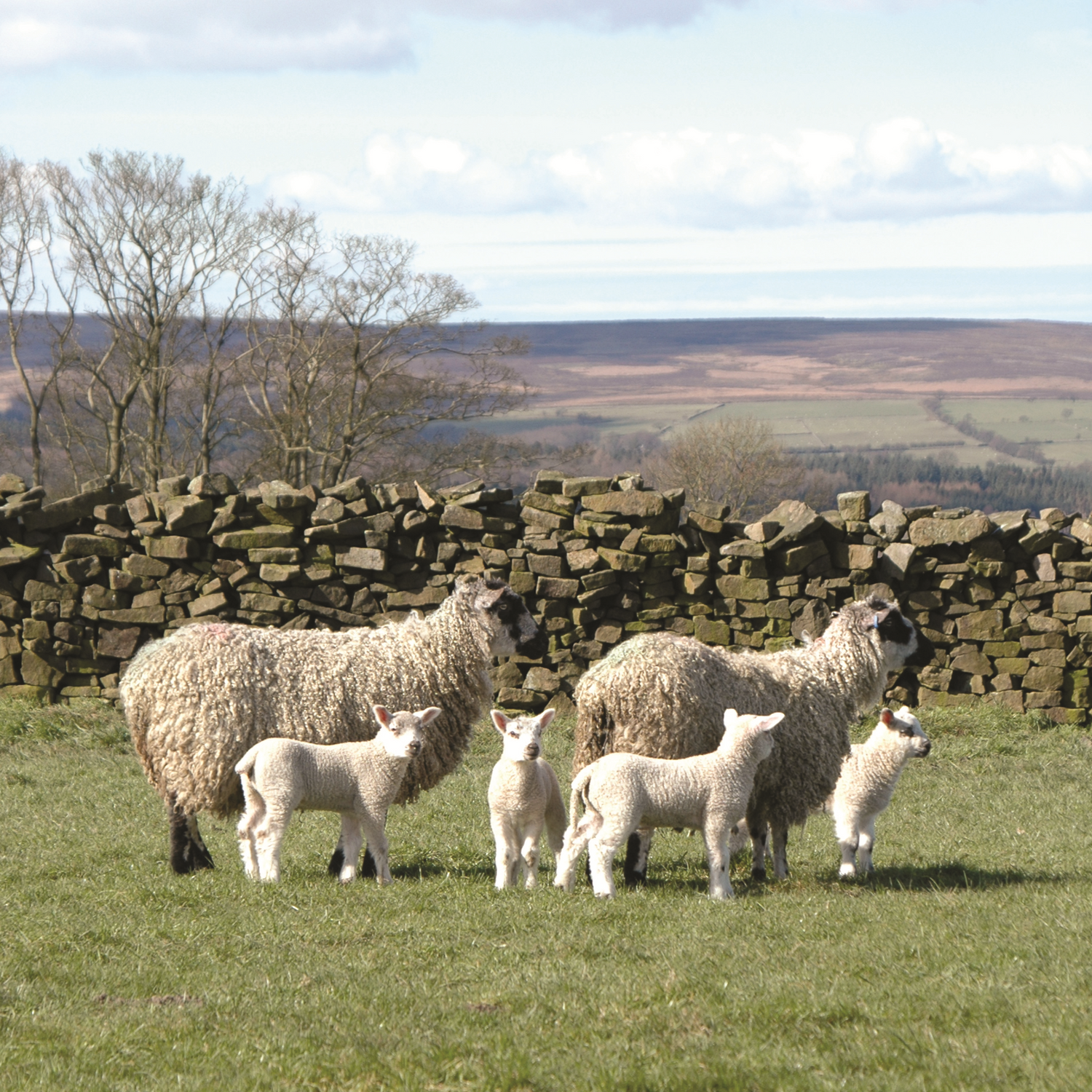
Baa Ram Ewe
At Baa Ram Ewe, our love for wool runs deep, and we strive to share this passion with everyone who appreciates the beauty of natural, sustainable fibers.
•
We believe that every sheep brings something unique to the table, which is why we've dedicated ourselves to creating a stunning array of breed-specific yarns.
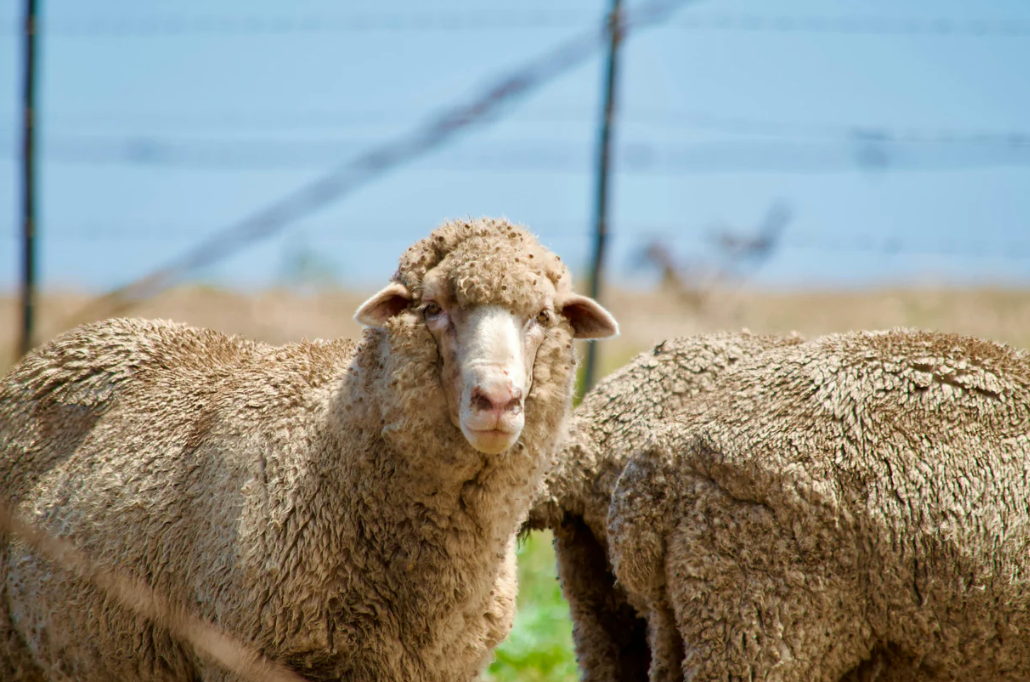
Fiber Sourcing
Our journey at Baa Ram Ewe revolves around the delightful world of wool, where artistry meets sustainability. We have meticulously curated a range of pure wool yarns that boast an impressive palette of colors and textures, showcasing the unique characteristics of different sheep breeds.
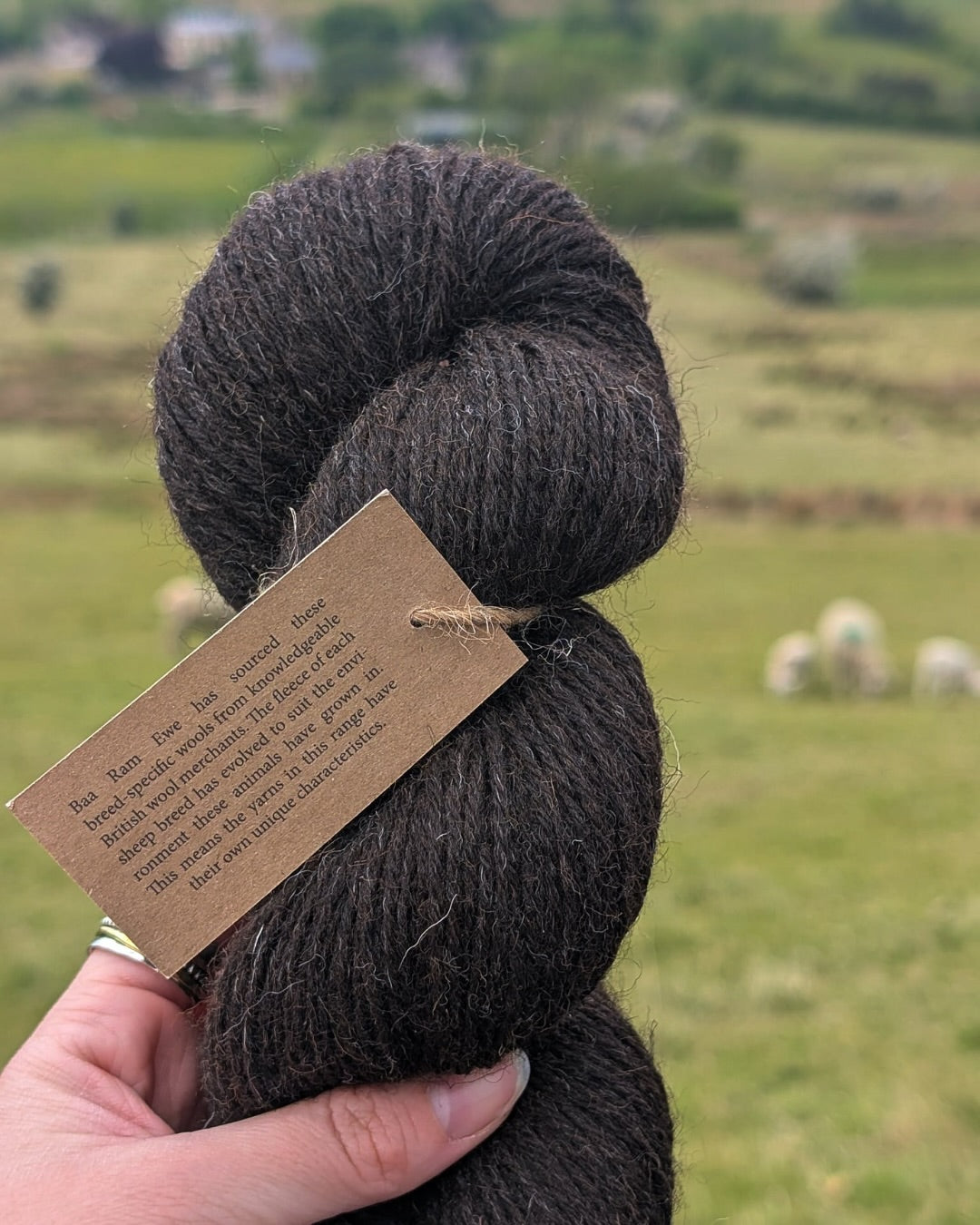
Breed Specific Yarns
At Baa Ram Ewe, we have a passion for wool and have made it our mission to share the beautiful natural properties of this sustainable fibre through a range of luxurious, breed-specific yarns that highlight the difference in qualities from sheep to sheep.
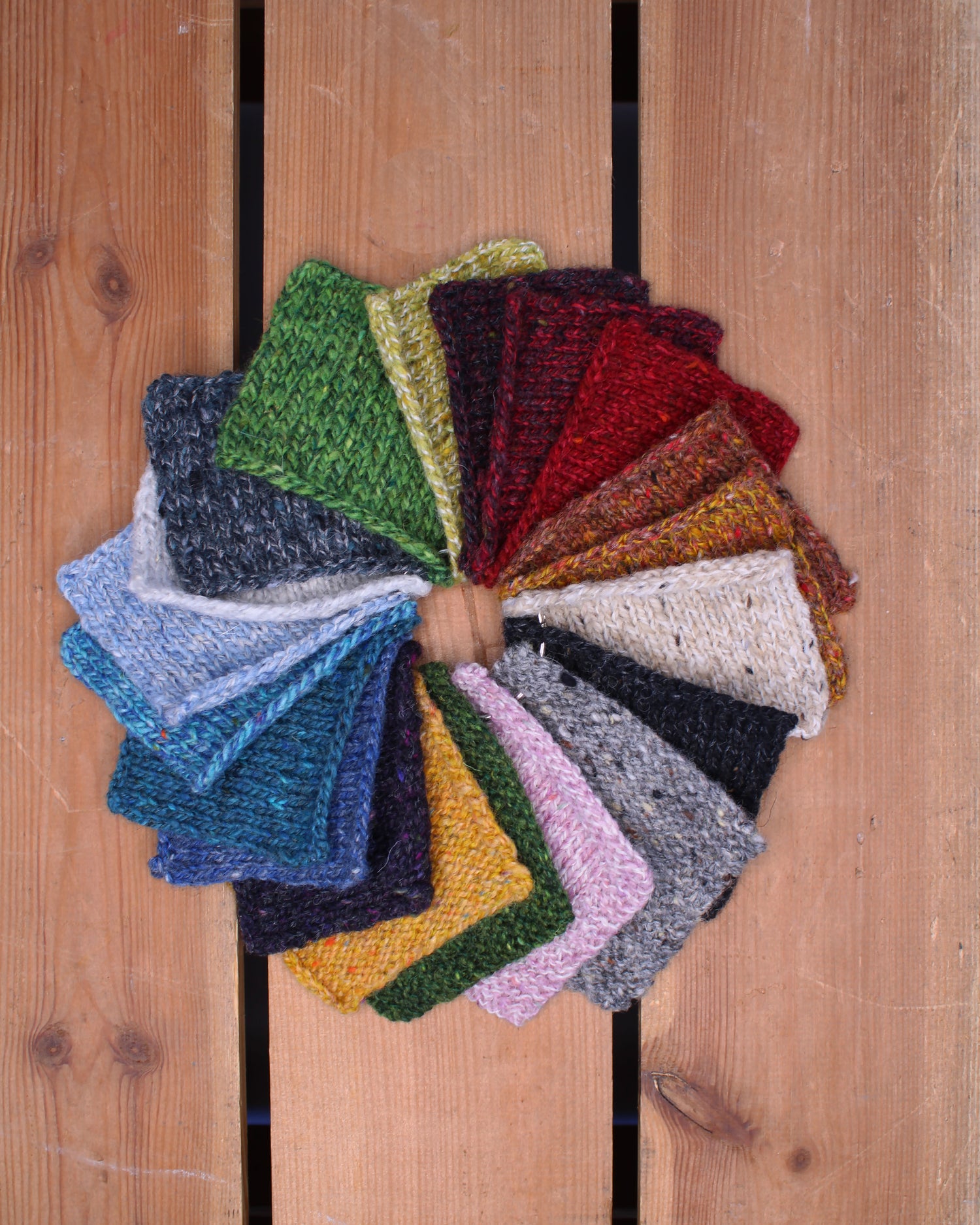
Explore Baa Ram Ewe Yarns
In collaborating with talented farmers, skilled spinners, and expert dyers throughout the UK, we ensure that our yarns stand out not just for their beauty but also for their quality.

Baa Ram Ewe Yarns
Whether you’re looking for a soft and luxurious yarn for a delicate garment or a hardwearing and durable yarn for a practical project, there’s a British sheep breed that’s perfect for you.
-
British Breeds
Regular price $23.00 USDRegular priceUnit price / per -
Donegal Twists
Regular price $33.00 USDRegular priceUnit price / per -
Eden 4-Ply
Regular price $28.00 USDRegular priceUnit price / per

